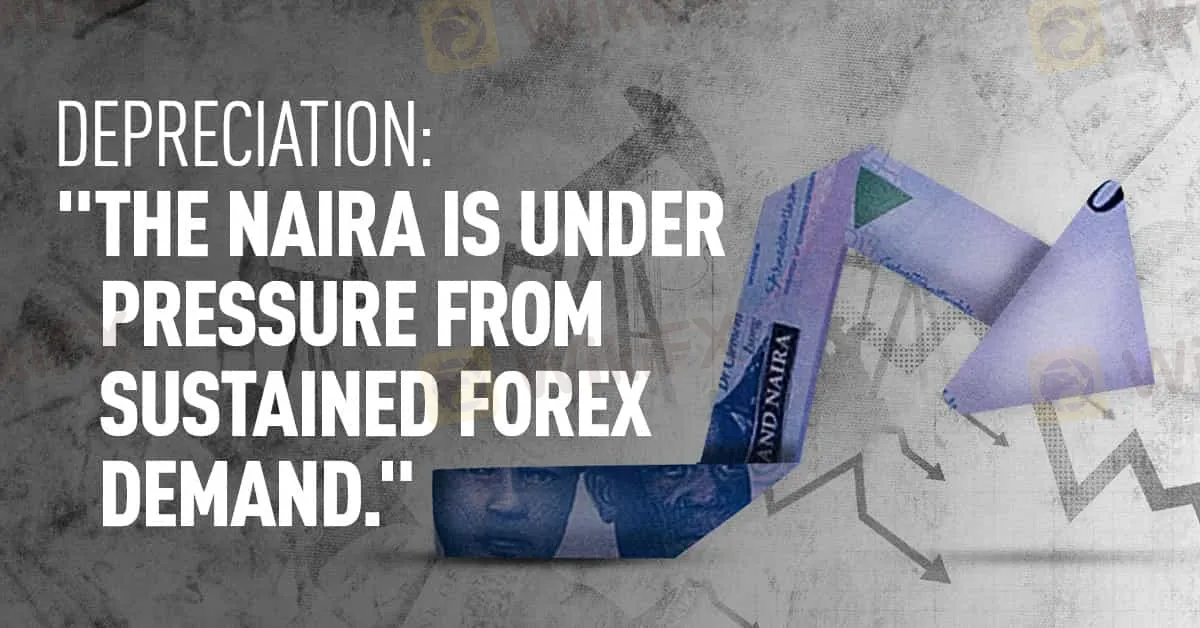Abstract:The reason for the depreciation of the naira against major currencies is attributed to the ongoing demand of foreign money to suit specific demands. Some experts suggested that the Federal Government should not be accountable for the decline in the value of the naira, even if they acknowledged that FX demands for school fees abroad have contributed to the naira's depreciation.

The reason for the depreciation of the naira against major currencies is attributed to the ongoing demand of foreign money to suit specific demands. Some experts suggested that the Federal Government should not be accountable for the decline in the value of the naira, even if they acknowledged that FX demands for school fees abroad have contributed to the naira's depreciation.
A multitude of factors, including shifting patterns of international commerce, institutional changes in the economy, and structural transformations in production, have shaped the FX market in Nigeria up to its growth. Prior to the Central Bank of Nigeria (CBN) being established in 1958 and the Exchange Control Act of 1962 being passed, the private sector generated FX, which commercial banks, acting as agents for Nigerian exporters, retained in balances abroad. Exports of agricultural products accounted for during this time. The lack of an active FX market was caused by the Nigerian pound's parity with the British pound sterling and its simple convertibility. But after the CBN was established and the Bank's FX authority was centralized, it became critical to create a local foreign currency market.
Speaking with reporters in Lagos, Tajudeen Olayinka, the CEO of Wyoming Capital & Partners, stated the problem further exacerbated by Nigerians' predilection for imported items. Purchasing domestically made goods and pursuing in his opinion, will significantly increase the value of the naira beyond its current level. One significant aspect is the need for forex to cover fees. We are aware that many international students have parents who can support them financially by sending money from Nigeria. Speaking about Nigerians' inclination for imported products, Olayinka stated: The collapse in the value of the naira is a result of both the inclination for imported goods and the incapacity to produce high-quality goods locally. We import raw materials in addition to completed goods. We do not make high-quality things in this country; everything we acquire comes from abroad. “One of the main causes of our population's overseas journey for high-quality education is inadequate and subpar education, which is also severely straining our currency. To strengthen the naira, we need to get some things right,” he said. Additionally, Saidu Abdulrahman, a Bureau De Change (BDC) operator in Sango-Otta, Ogun State, stated that parents whose children are enrolled in foreign universities and are required to pay tuition are the main source of demand for foreign exchange.
Saidu went on to say that bankers refer clients who require foreign exchange quickly to them. “The majority of our clients are parents who pay school fees. The fact that time is primarily against them makes them want to be compensated officially. The banks need more than two or three months to process it. Thus, he said, ”Anyone who is in a hurry will visit the parallel market.
According to a bank employee of a new generation bank, banks are unable to satisfy every demand for school fees. The staff member, who yearned for anonymity due to his lack of authority to speak, claims that the CBN has declared that requests for maintenance and international school fees made via Form A will now be fulfilled in 120 days. “Parents view the parallel market as an alternative to meet their FX needs because they can't wait for banks to process their request,” the speaker stated. Oloto Oladiji, a parent whose child attends Hulls University in the United Kingdom, claimed he is paying for his child's education out of his nose.










